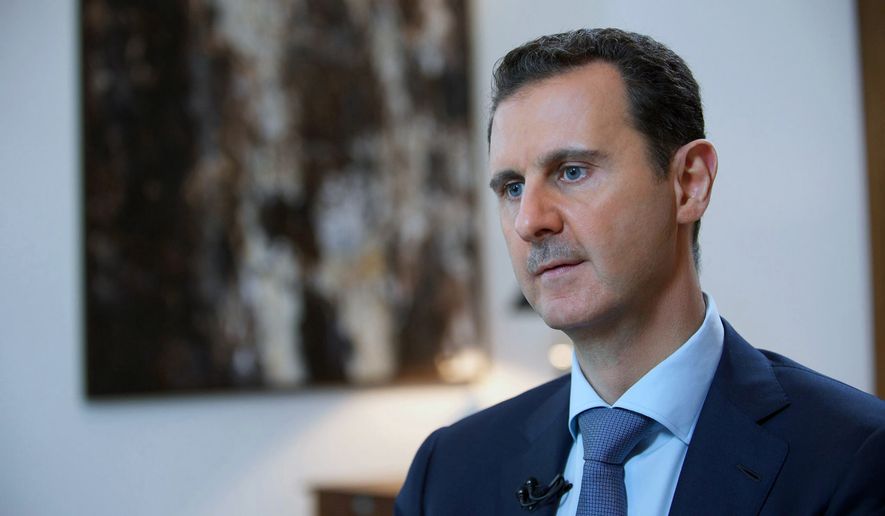MANAMA, Bahrain (AP) — The United States ramped up its support for Syria’s opposition with a pledge of nearly $100 million in fresh aid on Saturday. Meanwhile, Saudi Arabia’s top diplomat described the timing of the departure of Syrian President Bashar Assad and the withdrawal of foreign fighters as top sticking points to finding a lasting resolution to the civil war in Syria.
Deputy Secretary of State Antony Blinken announced the additional assistance at the Manama Dialogue security conference in the Gulf island nation of Bahrain, where discussion of Syria dominated the gathering of mostly Western and Arab officials.
The American promise of cash, which it says brings to nearly $500 million the amount it has pledged to the opposition since 2012, came a day after the U.S. announced it was intensifying its fight against the Islamic State group in Syria with the deployment of up to 50 special operations troops.
It also coincided with the completion of international talks in Vienna to pursue a new peace effort involving Syria’s Iranian-backed government and opposition groups. The negotiations left open the thorny question of when Assad might leave power, and it was unclear whether he or disparate rebel groups fighting to topple him would sign on to any peace proposal.
A new round of talks was expected to take place within two weeks.
The new U.S. funds will support local and provincial councils, civil society activists, emergency services and other needs on the ground inside Syria.
Saudi Foreign Minister Adel al-Jubeir told delegates gathered under tight security at a Bahraini luxury waterfront hotel that the timing of Assad’s departure and the withdrawal of foreign fighters remain the main sticking points to finding a lasting resolution to the civil war in Syria.
British Foreign Secretary Philip Hammond said the fact that the talks in Vienna included regional rivals Saudi Arabia and Iran was an achievement in itself.
But Al-Jubeir, who arrived from Vienna overnight, seemed to downplay the significance of what had been accomplished, declaring in Bahrain, “We have not been able to reach agreement.”
He said the oil-rich kingdom’s policy toward Syria has not changed, and that it would continue to support what he called the moderate Syrian opposition.
He described the presence of foreign forces, particularly Iranian troops, as a roadblock to ending the fighting in a war that has killed more than 250,000 people and forced 11 million from their homes.
Shiite powerhouse Iran, like Russia, is a longtime ally of Syria. The Islamic Republic has given Assad’s government billions of dollars in aid and large amounts of weapons since fighting began.
Iran has deployed what it says are military advisers to support the government and has had casualties in the conflict, though it denies the presence of Iranian combat troops in Syria.
Pro-Iranian fighters from Lebanon, Iraq and Afghanistan also have traveled to Syria to fight alongside Assad’s forces.
Al-Jubeir also made clear that the negotiations had done nothing to change Saudi Arabia’s position that Assad must go.
“Ideally he should leave this afternoon. The sooner the better,” al-Jubeir said.
Blinken was less blunt when it came to a timetable for Assad’s departure.
He suggested that Russia’s military intervention in Syria, though widely seen as a strong sign of support for Assad, could end up incentivizing Moscow to work toward a political transition that removes him from power.
Russia began conducting airstrikes in Syria in late September that benefit Assad’s forces, though it has also said it is ready to aid rebel groups that are fighting the Islamic State group.
“Russia cannot afford to sustain its military onslaught against everyone opposed to Assad’s brutal rule. The costs will mount every day in economic, political, and security terms — but at best only to prevent Assad from losing,” Blinken said.
He predicted a “quagmire” that draws Russia deeper into a conflict alongside Syria’s allies Iran and the Shiite militant group Hezbollah, and which alienates Sunni Muslims both in the region and in Russia itself.




Please read our comment policy before commenting.